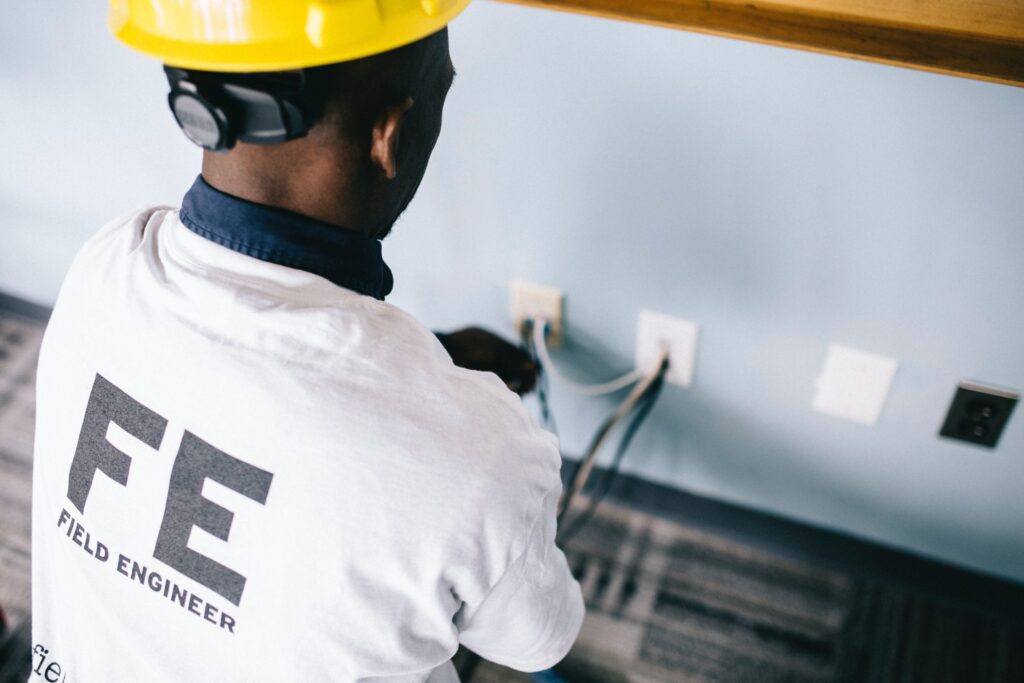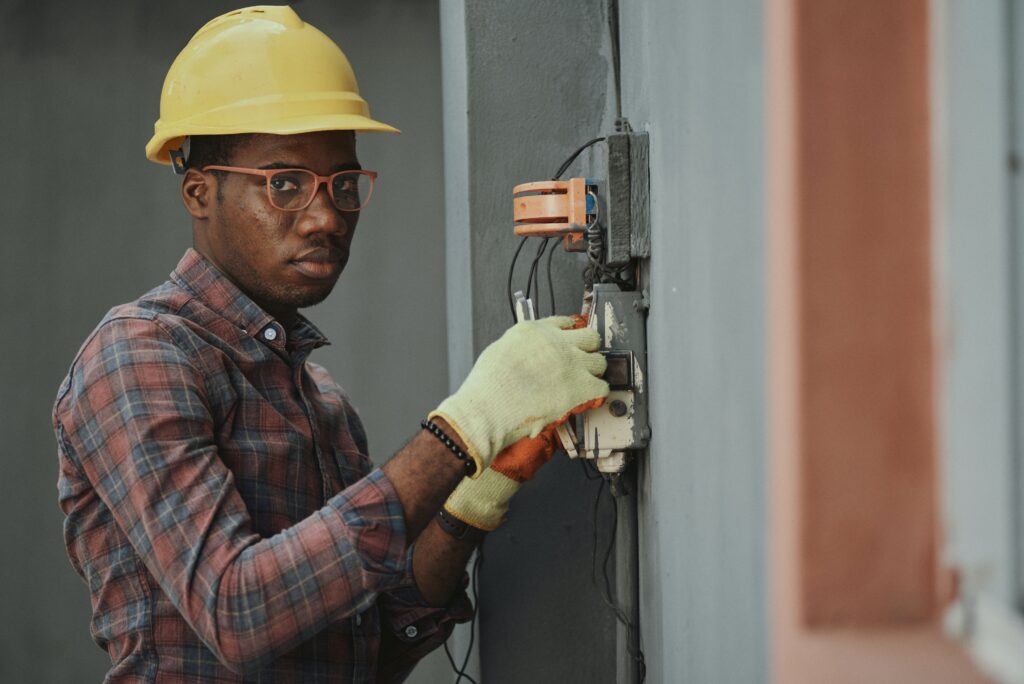It’s tempting to think that electrical maintenance can be put on the back burner since everyone has been working remotely over the last two years. But unfortunately, that’s not the case.
From charging our phones to powering our equipment, electricity is at the forefront of every busy modern business.
While employees in a significant majority of sectors have been able to work from home since March 2020, the electrical equipment in your premises still needs to be kept in safe working order. That’s because, while most of your staff were working from home, the electrical equipment in your premises might still have been in use, even if only on standby.
Today we’re looking at electrical maintenance for your premises and why it’s crucial to service your electrical equipment consistently. We’ll also look at the five different electrical maintenance types that you must keep on top of.
Why electrical maintenance is important
The reasons to keep on top of electrical maintenance are varied.
However, the most important reasons include
1. It’s the law in Northern Ireland.
Under ‘The Electricity At Work Regulations (Northern Ireland) 1991’ legislation, it says there should be a “systematic procedure in place to regularly check the electrical system including any portable equipment.”
For you, that means you legally have to ensure your electrical infrastructure is adequately maintained.
2. It keeps you, your staff and visitors safe.
Nobody likes thinking of worst-case scenarios, but unfortunately, it’s a widely accepted fact that most fires are caused by electrical equipment and cooking/catering equipment.
As a result, preventing a fire from starting is vital to local businesses that want to keep their staff and visitors safe.
3. Electrical equipment suffers wear and tear.
Despite your electrical equipment not being used as frequently over the last two years due to the global pandemic, it will all still suffer from wear and tear.
This includes all of your catering equipment, security and alarm systems, emergency lighting, and anything else in your premises that is powered through electricity.

The five types of electrical maintenance you shouldn’t ignore
Whether you have a busy restaurant, a commercial kitchen, or something in between, regularly getting your electrical catering equipment serviced is a good idea.
A regular maintenance programme will help you achieve four things:
2. Electrical Installation Condition Report (EICR)
As we mentioned earlier, wear and tear along with damage can cause a fire.
Indeed, old and faulty wiring causes a significant number of fires in commercial premises every year.
That’s why you should arrange for an EICR to be carried out at least every five years.
Also known as fixed wire testing, the EICR aims to do five things:
1. Record the testing and inspection results and ensure all electrical equipment and installations are safe to use until your next inspection.
2. Identify damage, wear and tear and anything that might affect safety and report it.
3. Ensure all parts of your electrical installations comply with ‘The Electricity At Work Regulations (Northern Ireland) 1991’ regulations.
4. Identify anything that might result in electric shocks and/or high temperatures.
5. Create a vital record of the installation at the time of the inspection and help with future inspections and testing.

After the report has been completed, you’ll receive details on what meets and doesn’t meet current safety standards, as well as two possible outcomes:
1. Satisfactory
2. Unsatisfactory
If you are marked as ‘Unsatisfactory’, the four codes within the report will tell you how your premises have fared under inspection and whether you need to take further action.
The four main codes are:
· C1: Danger present
· C2: Potentially dangerous
· C3: Improvement recommended
· FI: Further investigation required
3. Portable Appliance Testing (PAT) in Northern Ireland
Portable Appliance Testing (PAT) is a legal obligation placed on every workplace under ‘The Electricity At Work Regulations (Northern Ireland) 1991’ regulations.
In Northern Ireland, PAT testing is carried out by fully qualified electrical engineers annually.
The engineer will carry out an extensive inspection of all of your electrical equipment, devices and appliances.
This helps ensure all of your equipment is free from faults and is working safely.
Carrying out PAT testing consistently is one of the best ways to avoid fires and potentially dangerous electrical incidents.
Should the worst ever happen, being able to provide certificates for your regular PAT testing will ensure you’ve met your obligations under your insurance policy.


4. Inspection and testing
Arranging for regular testing and inspection of your electrical equipment isn’t just good business practice, but it could be potentially life-saving.
At Enviro FWA, we can ensure everything in your building complies with all local and national regulations and give you peace of mind.
And while preventing fire is of the utmost importance, so too is your alarm systems that alert occupants to a fire.
As a result, you should aim to carry out in-house fire alarm testing every week.
And under BS 5839-1:2017, you should get your fire alarm system inspected every six months by a fully-qualified alarm and emergency testing engineer.
These checks to your fire alarm system should include an inspection and calibration of your fire alarm sensors, as well as reviews on batteries to identify signs of corrosion.
5. Other electrical maintenance works
And how many times might the light switch to the staff room be switched on and off every day?
As you can imagine, with heavy daily use, it won’t take too long before sockets, lights, and switches suffer from wear and tear.
That’s why it’s essential to arrange a regular inspection of any electrical equipment in daily use.

For more information on electrical equipment testing, get in touch with Enviro FWA today.
We pride ourselves upon understanding our clients’ needs and forging partnerships which enable
the smooth running and compliance of their businesses
Breakdown emergency callouts – 24/7 – 365 days
Contact 077 9661 4886